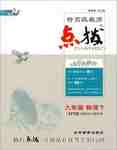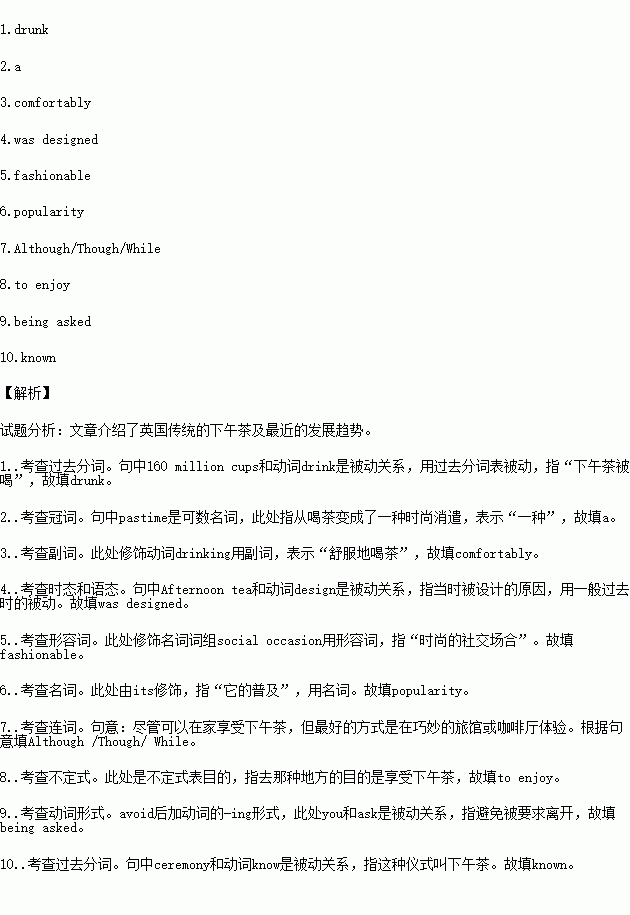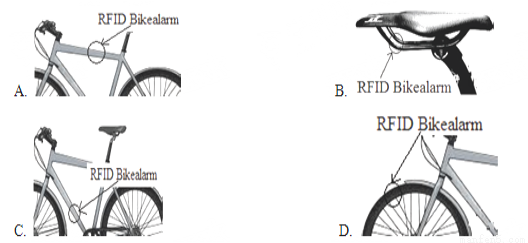题目内容
阅读下面材料,在空白处填入适当的内容(1个单词)或括号内单词的正确形式。
The British have many traditions but there is nothing more typical than taking afternoon tea. We know the Brits have a love affair with drinking tea, with more than 160 million cups 1. (drink) every day, but it was the invention of afternoon tea that turned tea-drink into 2. popular pastime.
This sociable feast involves drinking good quality tea 3. (comfort) while nibbling (小口吃) on nice sandwiches, scones with jam and cream and a selection of small cakes. And, of course, it can only happen in the afternoon! Afternoon tea, which 4. (design) as a light snack to bridge the gap between lunch and dinner, dates back to the 1840s. It went on to become a 5. (fashion) social occasion for the upper classes.
Now there is a resurgence (复苏) in its 6. (popular) in the UK and it is available to anyone who can afford it. 7. it can be enjoyed at home, the best way to experience it is at a smart hotel or café. But if you’re thinking of visiting such a place 8. (enjoy) afternoon tea, remember the rules you must follow to avoid 9. (ask) to leave.
Writer Henry James once noted that “there are few hours in life more agreeable than the hour dedicated to the ceremony 10. (know) as afternoon tea.” I’m sure once you have tried it, you will agree.
 特高级教师点拨系列答案
特高级教师点拨系列答案

